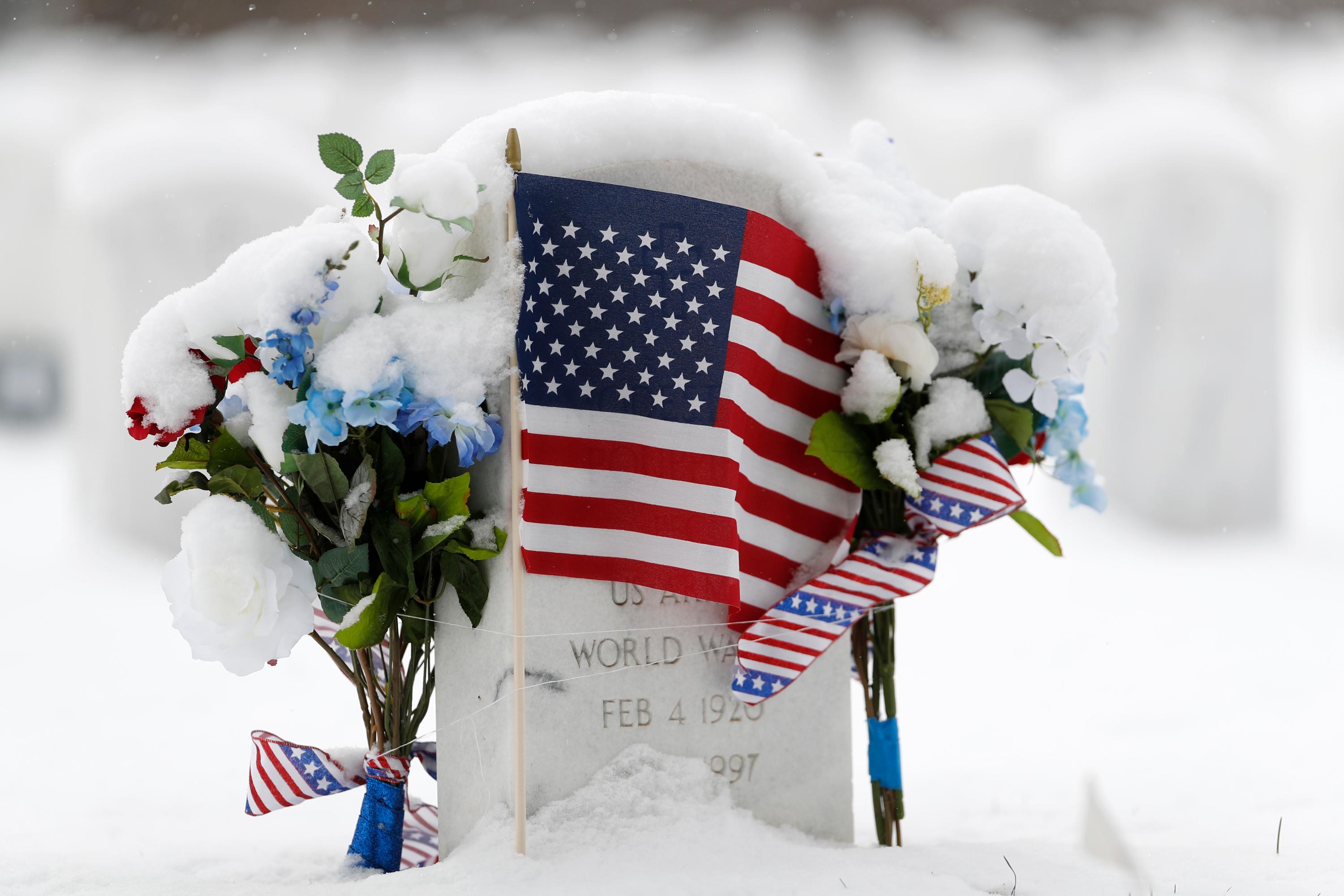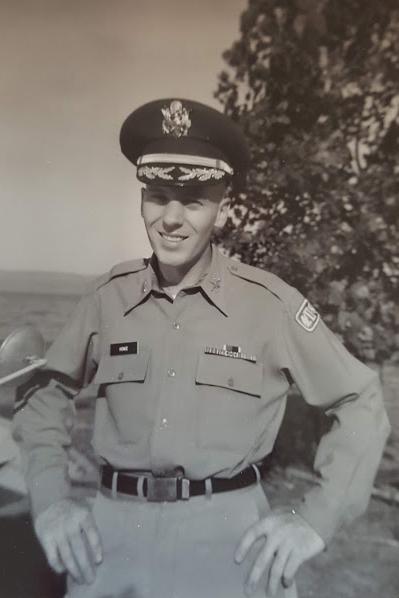
David Howie describes it as the “scary birthday in Italy he’ll never forget.”
It was 1944 in the middle of World War II. Howie, now 99, was drafted two years earlier as a motor officer and forward field observer. It was his job to be able to calculate angles and adjust fire from the howitzers at the rear. He had always been a good gunnery candidate, and he liked being with the infantry.
One day, his unit was called to help the 88th Division. They were hunkered down in their foxholes as German artillery started raining down on them. Then, all of a sudden, Howie felt his foxhole raise up in the air, then lower back down.
“I couldn’t tell what had happened because shells were landing all around me,” he said. “And the ground was shaken up and settled back down in the dirt.”
The fire lasted for a long time, but when it finally subsided, Howie climbed out of his foxhole to see what had happened. It turned out a huge, 365-pound steel shell filled with TNT and armed with a delayed fuse had burrowed underneath him and gone off.
“It cracked the ground and the water that had collected in my foxhole, it was already draining into the big hole that this had made underneath my foxhole,” he said.

After coming to terms with how close he had been to getting blown up, he used the angle of the shell to calculate where it had come from. Then he went to his intelligence officer and together they mapped out where the Germans had kept a huge cannon in a cave. With the help of the Tuskegee Airmen, they took the cannon out of commission.
When it was over, Howie had to submit an artillery report, and he also had to go out and collect the dog tags of the men who had been killed. When he submitted his report, he asked the clerk what the date was.
“And he says, ‘Today is the ninth of November.’ And I said, ‘Oh, it’s my birthday, 23rd birthday,’” Howie said. “And he says, ‘I went out and looked at the shell hole underneath. You were pretty lucky today.’ And I said, ‘Yeah, and I got the only self-draining foxhole in the entire area.’”
After World War II ended, Howie was honorably discharged. But he knew that another war was on the horizon, so he joined the Active Reserve and served as a weekend warrior during the Korean War. He officially retired from the Army in 1963 as a major, after serving for 20 years, eight months and 29 days.
Howie settled down in Miami with his family and went back to his pre-war career as a printer. He retired from that career, then became a high school teacher where he taught printing as a trade.
He retired for a third time and moved to Tucson, Arizona, with his wife. Howie then eventually settled in Denver with his children where he has lived for the past 20 years.
Nowadays, Howie occasionally visits elementary schools to tell stories about World War II. One of his favorite stories to tell is about the time he dodged a different kind of fire.
“You had to have all your buttons buttoned at all times,” he said. “And one day, the captain was inspecting the ranks, and the soldier ahead of me had a pocket unbuttoned. So the captain grabs it and says, ‘Soldier, do you want that button?’ ‘Yes, sir.’ And he rips it off the shirt and says, ‘Hold out your hand.’ He says, ‘Here, you wanted it.’”
The same scene played out a second time on a different day, but the soldier responded in the negative. The result was still the same: The captain ripped the button off, then threw it to the ground.
The day eventually came when it was Howie’s turn. He was unlucky enough to have his pocket unbuttoned. The captain walked up to him and asked him, “Soldier, do you want that button?”
“And I answered, ‘Right where it is, sir,’” Howie said. “And he looked at the sergeant, and he says, ‘Sergeant, that excuse will never be used in this unit again.’ And he let go of my button. And I dodged a bullet that day.”








